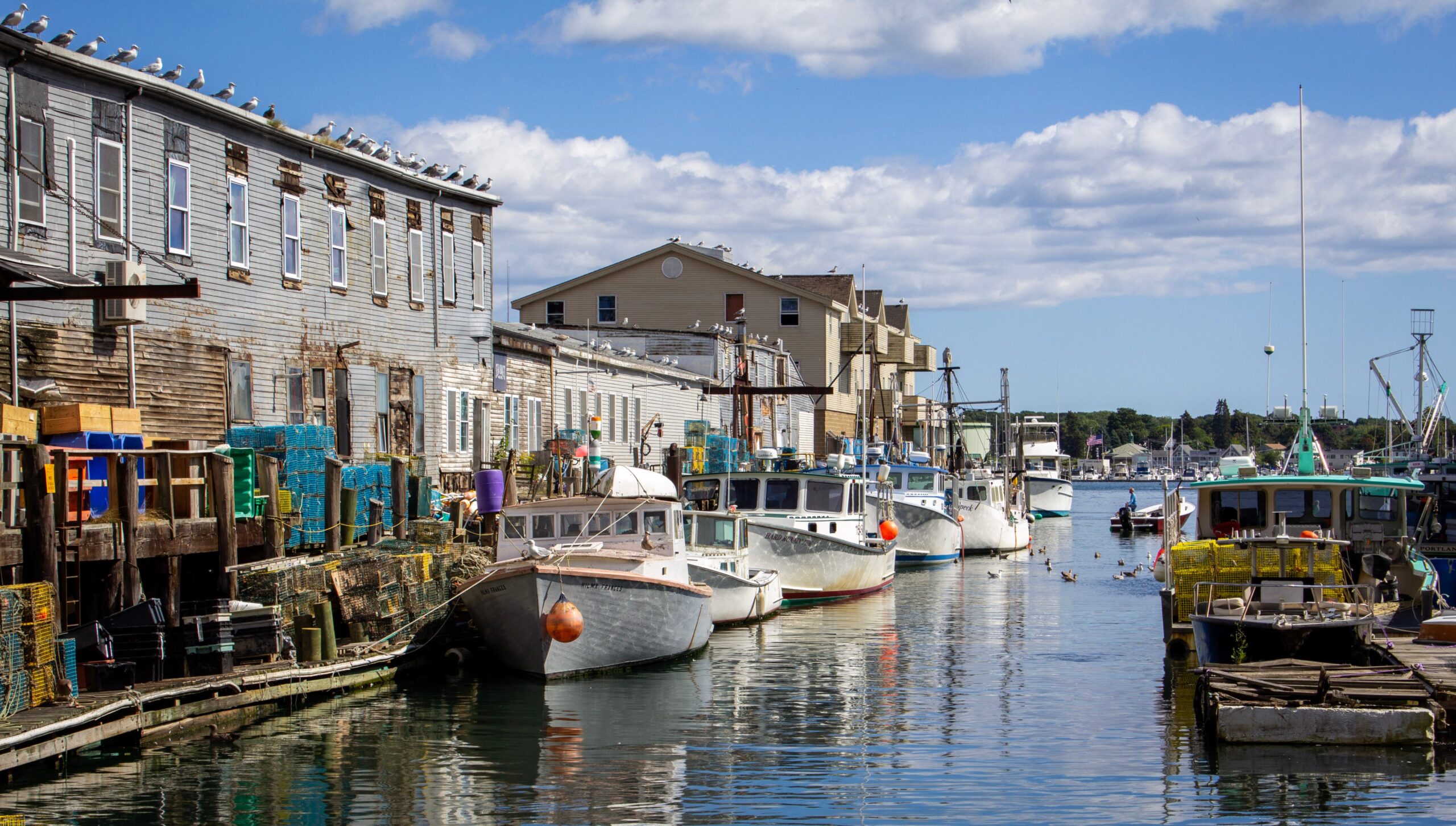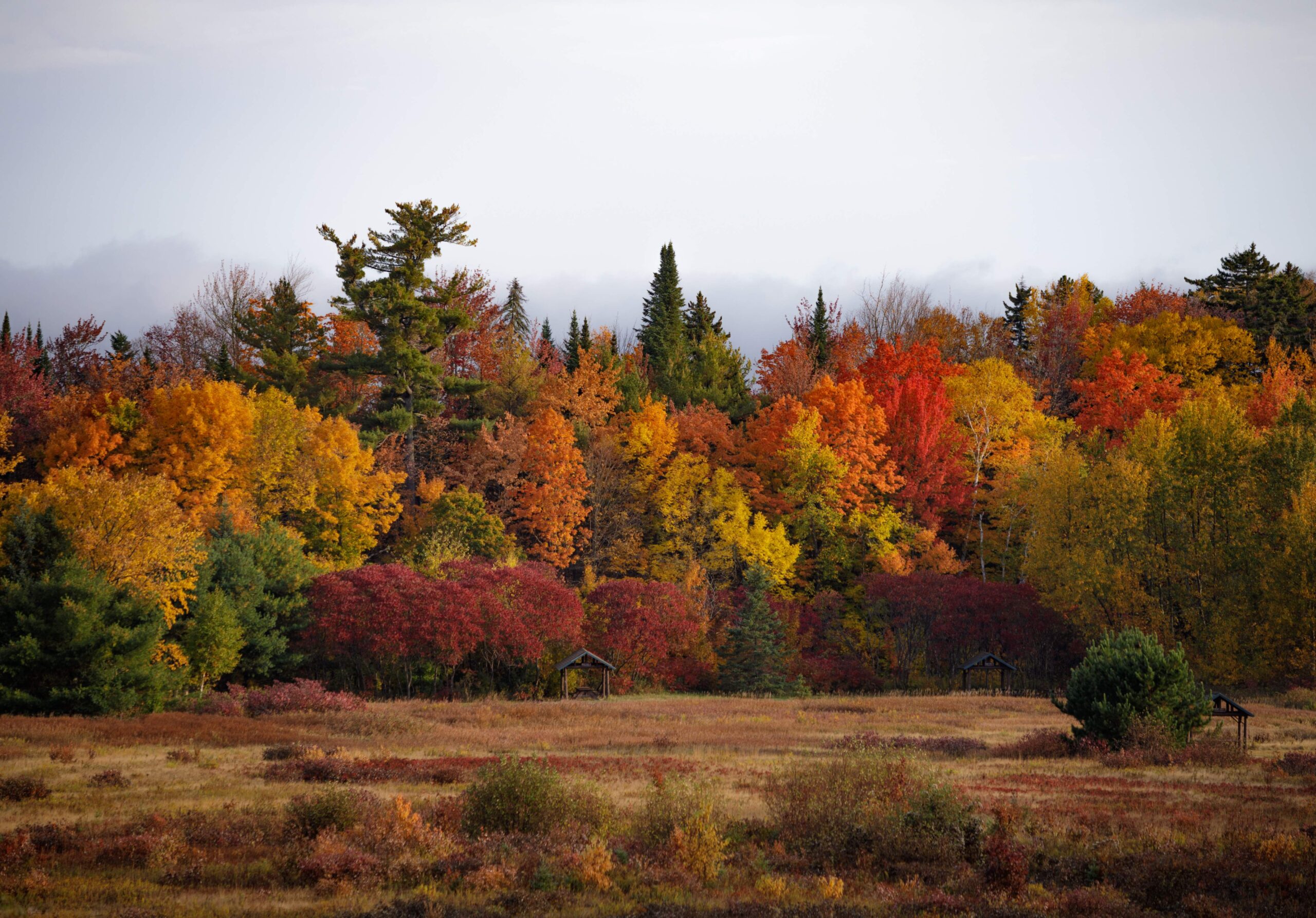(PORTLAND, Maine)—Alicia Valcaniant wakes up around 4:30 most mornings to prepare meals such as Indian butter chicken, egg roll bowls, and sweet potato loaded with buffalo chicken, broccoli, and yogurt blue cheese dressing. On Tuesdays, she loads pre-portioned, individually packaged orders into her Chevy Equinox and delivers the ready-to-eat meals to her customers across the Greater Portland area.
A former Floridian, Valcaniant relocated to Maine in 2017 with her three dogs in search of a new lifestyle and community. She had spent several seasons working at a farm-to-table restaurant in Rockland before deciding to move for good.
“Maine is great,” Valcaniant said. “I just have always been in love with it since I moved here seasonally years ago.” Though she left her family behind, Valcaniant was eager to embrace a new culinary scene, emphasizing local ingredients. Now 33, she started The Hungry Gains, her meal prep business, in 2021. She sources produce, meat, and dairy from local Maine farms.
“Maine has so many farms,” Valcaniant said. “It’s easy to eat as locally as possible.”
While Maine has the oldest median age in the country at 44.8, the Pine Tree State is the only state whose median age declined between 2020 and 2021. The COVID-19 pandemic spurred a migration of young people, and Maine remains one of the top states for inbound migration. Maine was the state with the highest percentage of inbound moves in 2023, and the second highest in 2022, according to Atlas Van Lines’ annual migration patterns study.
Maine started to see an uptick in migration even before the pandemic hit. “Maine is very much a lifestyle destination. In recent years, people have come to value outdoor activity, a better work-life balance, and smaller communities,” said Amanda Rector, the Maine state economist.
The recent migration also marks a change in the state’s image. “When people think of Maine, they think of lobster, they think of the coast, they think of Acadia National Park,” said Ed McKersie, founder of Live + Work in Maine and ProSearch, a staffing and recruiting firm. “But the perception was that if [you] wanted to continue on your career track, the job didn’t exist here in Maine.”
The influx of new residents is vital to sustaining Maine’s workforce and economy. With the flexibility of remote work and growing industries such as tech, banking, healthcare, and startups, Maine offers career paths beyond its traditional industries such as fishing and tourism.
The state government is also trying to recruit young people to the workforce, as outlined in its 10-year economic development strategy that began in 2020 and continues through 2029.
Most people moving to Maine choose Portland—the state’s largest city—or its surrounding towns. Portland is a coastal city known for its vibrant restaurant scene and historic working waterfront. In 2023, Portland was ranked one of the top 10 best places to live in the country by U.S. News. Local businesses line cobblestone streets and boats glide through Casco Bay.
While people relocate for a variety of reasons, many new Mainers were influenced by the pandemic, a former connection to the state, or wanting to embrace a different lifestyle.

Portland’s Working Waterfront [Credit: Serena Folding via Visit Portland]
Among the pre-pandemic migrants is Conz Preti, 40, a senior editor at Insider, who was living in Brooklyn with her husband and young son when she became pregnant with twins. Realizing her growing family would not fit in a city apartment, Preti and her husband—who grew up in Maine—decided to relocate to the state and bought a house in 2019.
They delayed moving until after she gave birth in March 2020, and in the midst of the pandemic, packed up their belongings and left without being able to say goodbye to their friends. Preti said she did not have any connections or friends in Maine, but the move was “weirdly, an easy transition despite having everything against us.”
The family has now settled into their Falmouth home—the three kids often riding bikes and scooters down their quiet street—and are taken by the friendliness of their new neighbors.
“It’s shocking how nice Mainers are. People actually care about each other,” Preti said. “In our neighborhood, people are bringing each other food if someone is sick or dropping off extra clothes if their kids outgrew them. It’s just a real sense of community.”
Boomerangs
“Boomerang” is a term for people who grew up in Maine, left for college or job opportunities, and came back later in life. Many returnees want to relive the familiar lifestyle they knew growing up.
Katie Shorey loves all things Maine. She was raised in Sweden, Maine, population 400 people. She left the state for college, and worked in Washington D.C. and San Francisco before learning about the different business opportunities and returning to her home state.
“I learned about how the world works,” Shorey said, referencing her years working in major cities. “But I like being able to apply everything that I learned on more of a local level.”
Now Shorey, 35, works as director of engagement at Live + Work in Maine, a nonprofit marketing initiative which builds awareness about the career and social opportunities.
“If you are trying to get in touch with the CEO of some company, it’s very likely that he or she will answer your email,” Shorey said, emphasizing the personal relationships common in Maine. “I’ve reached out to the CEO of L.L. Bean before to get an opinion, and he got back to me.”
Keri Montague, 42, is another boomerang, who grew up in Fryeburg, a small town near the New Hampshire border, and left Maine for college and work in Connecticut. Montague returned to Maine three years ago with her husband and son to be closer to family, to enjoy outdoor activities like hiking, and for a slower pace of life. Montague now works at her alma mater, Fryeburg Academy, as the associate director of advancement and alumni relations.
“There are a lot of nice connections that you don’t lose when you leave,” Montague said. “When I come back, it’s like I never left. I see my old friends’ parents in the grocery store and they give me a huge hug. And it’s the same as it was in 1996.”
Maine Experiences
Justin Smulski came to Maine as a tourist and decided to stay.
While he was working as a chef in Boston, Justin Smulski took day trips to Portland. Drawn by the city’s “fun and funky culture,” he decided to move and work in the restaurant scene in 2016. With plenty of scenic trails nearby, Smulski soon took up camping, hiking, and backpacking, which led to taking nature photos and eventually developed from a hobby into a business.
“[Maine] is absurdly entrepreneurial,” said Smulski, 36, who now works full-time at his freelance photography business Tide to Pine. “Everyone has a side hustle. Everyone has a hobby or art form or skill that has turned into some portion of their income.”

Trout Brook Farm Campground in Baxter State Park [Credit: Justin Smulski]
Valcaniant admits she gets asked why she would move from the beaches of Florida to the harsh Maine winters. The answer is simple.
“It’s hard to put to words, but it really feels like the way life should be,” Valcaniant said.


